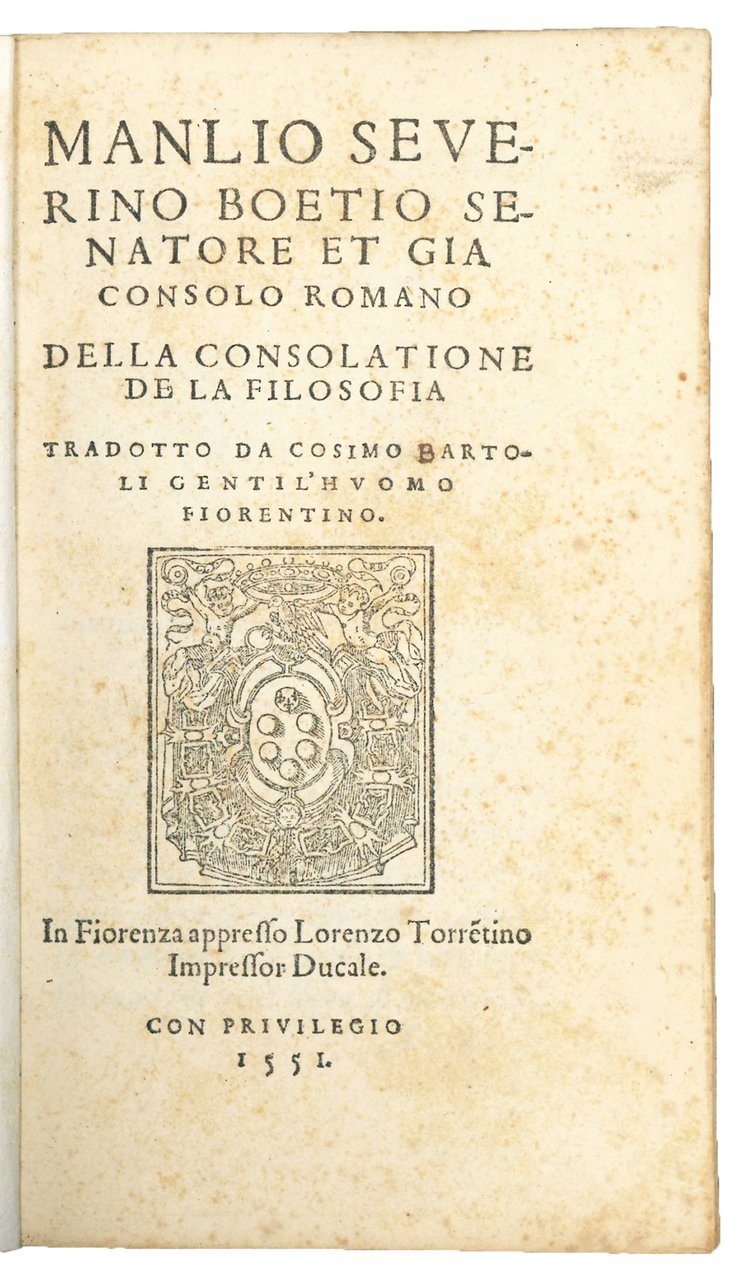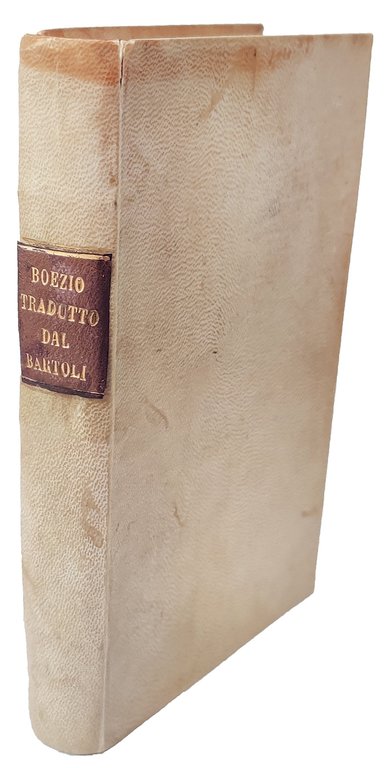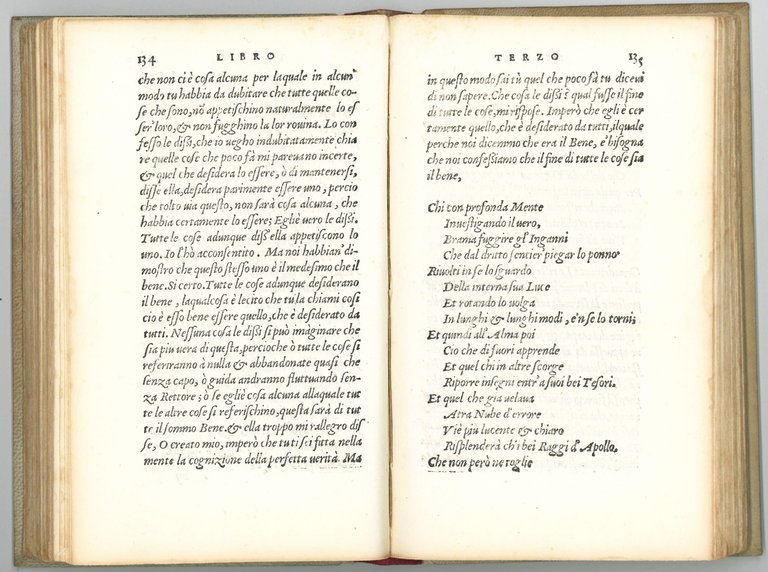


Libri antichi e moderni
BOETHIUS, Anicius Manlius Torquatus Severinus (ca. 480-524)-BA
Della consolatione de la filosofia tradotto da Cosimo Bartoli gentil'huomo fiorentino
Lorenzo Torrentino, February 1551
500,00 €
Govi Libreria Antiquaria
(Modena, Italia)
Le corrette spese di spedizione vengono calcolate una volta inserito l’indirizzo di spedizione durante la creazione dell’ordine. A discrezione del Venditore sono disponibili una o più modalità di consegna: Standard, Express, Economy, Ritiro in negozio.
Condizioni di spedizione della Libreria:
Per prodotti con prezzo superiore a 300€ è possibile richiedere un piano rateale a Maremagnum. È possibile effettuare il pagamento con Carta del Docente, 18App, Pubblica Amministrazione.
I tempi di evasione sono stimati in base ai tempi di spedizione della libreria e di consegna da parte del vettore. In caso di fermo doganale, si potrebbero verificare dei ritardi nella consegna. Gli eventuali oneri doganali sono a carico del destinatario.
Clicca per maggiori informazioniMetodi di Pagamento
- PayPal
- Carta di Credito
- Bonifico Bancario
-
-
Scopri come utilizzare
il tuo bonus Carta del Docente -
Scopri come utilizzare
il tuo bonus 18App
Dettagli
Descrizione
First edition of the De consolatione Philosophiae in the Italian translation by Cosimo Bartoli. In the late 1540s, Emperor Charles V, in anticipation of his retirement from public life, requested to the Duke of Florence Cosimo I a new Italian version of Boethius' work. The duke entrusted the task to three leading Florentine academics: Ludovico Domenichi, BenedettoVarchi, and Bartoli. All three translations were published by Torrentino between 1550 and 1551. It was Varchi's that met with the greatest success as he better managed to maintain the alternation between verse and prose of the original text.
The volume has a double dedication: the first to Cosimo I is dated May 5, 1549, while the second to Ferrante Sanseverino, prince of Salerno, is dated January 1, 1550.
The reasons for such a revival of Boethius' work in the Florentine academic circles, beyond the imperial commission, are manifold. On the one hand, the ancient philosopher's fame for its extraordinary erudition, his reputation as a translator and commentator on Plato and Aristotle (as well as synthesizer of their philosophies), his influence on Dante, and the widespread belief that he was closed to the Christian spirit. On the other hand, the great consolatory value that that text exerted on men who were effectively exposed to the whims of other more powerful men and of fortune (cf. J. Bryce, Cosimo Bartoli (1503-1572). The Career of a Florentine Polymath, Genève, 1983, pp. 172-176).
Edit 16, CNCE6563; Moreni, pp. 171-173.

